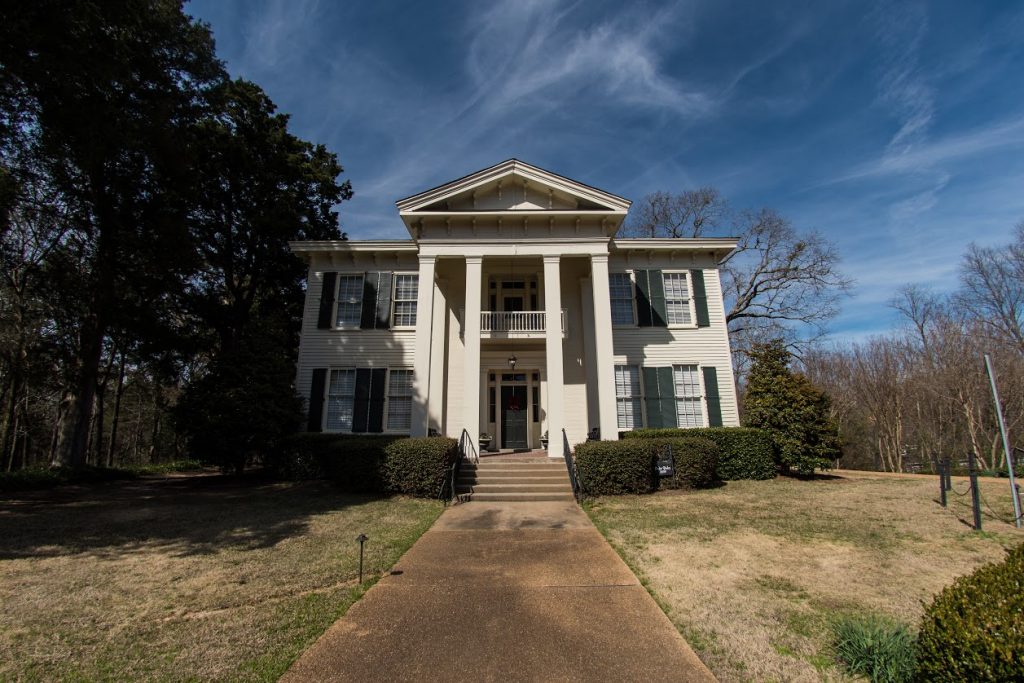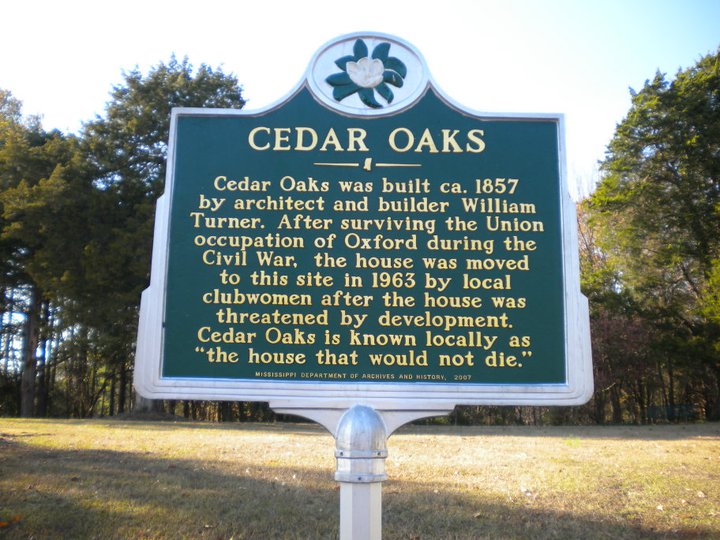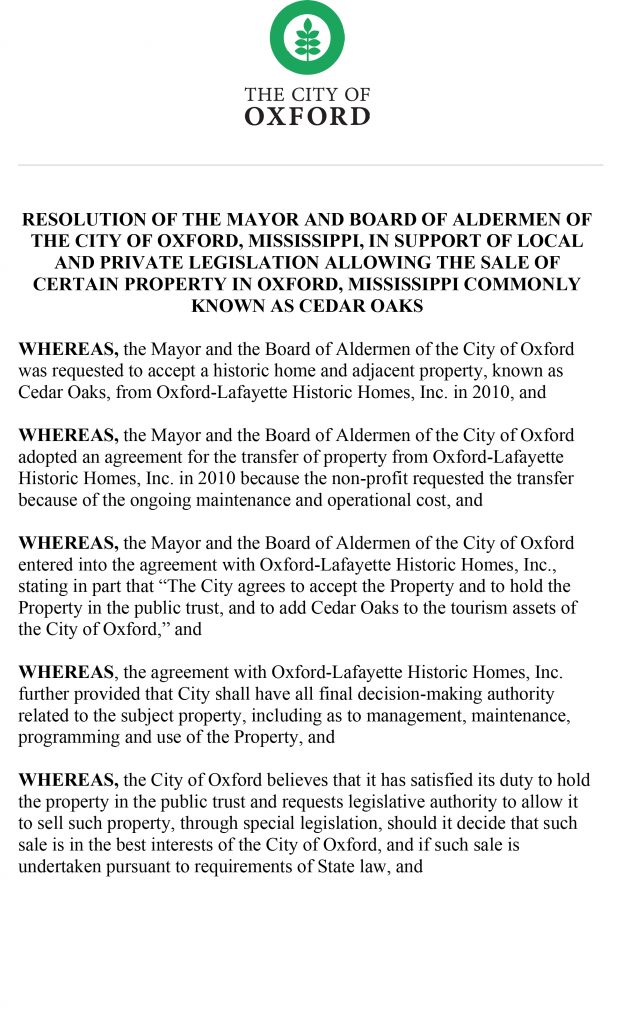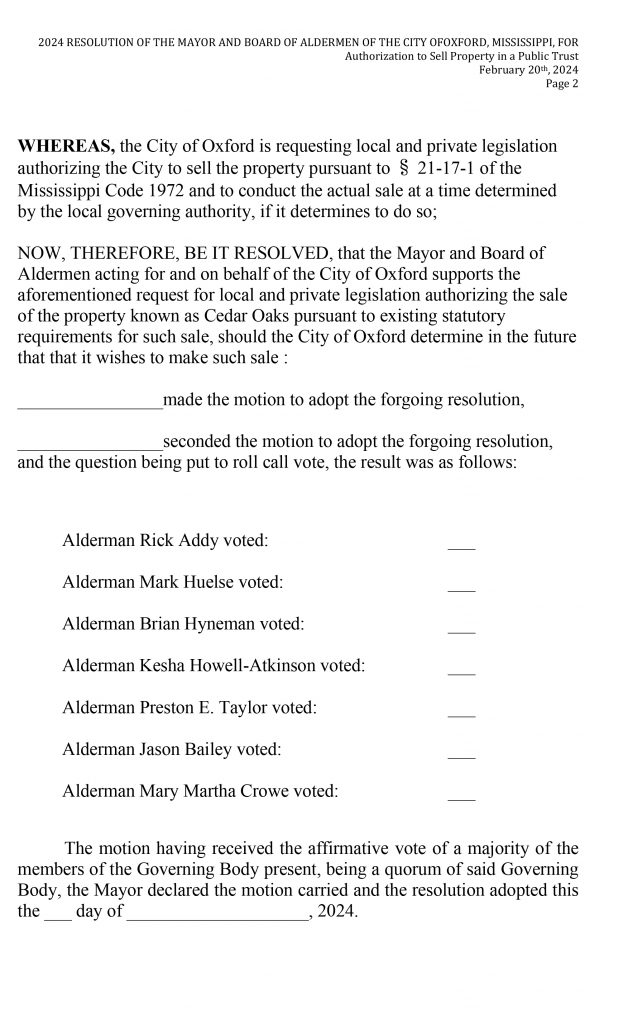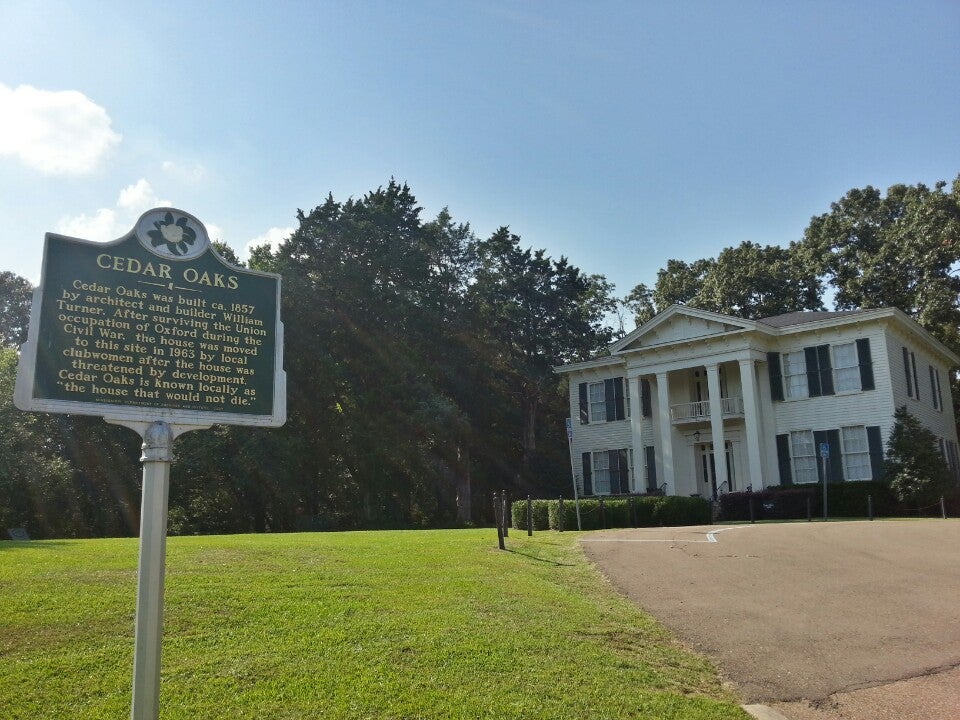
by JOE ATKINS
OXFORD – The year was 1864, and Union General Ulysses S. Grant’s soldiers invaded Oxford for the second time. Two years earlier, Union troops took over what is today known as the Cedar Oaks Heritage Home, then just off the Oxford Square, and held Confederate prisoners in the basement.
This time Grant’s troops threatened to burn the house down just they like they did much of the rest of the city. Two women–Molly Turner Orr, whose father built the home in 1857, with help from Sara Isom—stood in the way of that conflagration and convinced Grant to keep his torches away from the home.
Today, a group of local women under the banner of the Cedar Oaks Guild are continuing the tradition. They have vowed to save the house from a current effort that would allow the city to sell it to private individuals, investors, or enterprises. The Guild oversees operations of the house, where tours, pilgrimages, weddings and various social events regularly take place.
On Tuesday evening (February 20, 2024), the Oxford Board of Aldermen will consider a resolution to seek “local and private legislation” that would allow the city to sell the home if it deemed it was necessary. The Cedar Oaks Guild had no prior idea the resolution was on the agenda.
“We were not informed at all about the meeting and did not have time to request to be on this week’s agenda,” Cedar Oaks Guild President Keri Dibrell said. “We are not on the meeting agenda.”
The resolution prompted a sharp response from Lillian Susan Walker Smith Sahag, whose parents Walker Hassell and Jane Smith donated Cedar Oaks to the Centennial, Cosmopolitan and Reader’s Guild Women’s Clubs in 1963. That organization turned the property over to the city of Oxford in 2010.
“I was born in the home,” Sahag wrote in a February 19 letter to Mayor Robyn Tannehill and the Board of Aldermen. “It was with GREAT EFFORT (her emphasis) and great sacrifice that this home was given to the people of Oxford. “
Citing the home’s long history—its builder, William Turner, also built the Lyceum on the University of Mississippi campus, Sahag continued, “This home and the land was NOT GIVEN for the city to profit from the sale of this house! We could have easily accomplished this on our own. NO! This home was donated in love to the citizens of Oxford!!!”
Cedar Oaks has been a survivor indeed. In 1963, the home had literarily to be sliced in half so it could be moved from its original location just off Oxford’s fabled Square to its current location on Murray Street. Its removal was required to provide space for a new hotel and accommodate growth and development around the Square.
In a lengthy response to the letter, Mayor Tannehill insisted the city has no existing plans to sell the home. “Cedar Oaks is a Mississippi Historic Landmark. Alterations to the building have to be approved by the Mississippi Department of Archives and History. The house will be protected.”
However, Tannehill wrote, the resolution would allow the city to sell the house and its surrounding property “if the Board decided that the expenses associated with Cedar Oaks were outweighing the benefit of public use of the property.”
Oxford is a growing city, Tannehill wrote. “A town with 28,000 tax payers that sees approximately 60,000 people in town on any given weekday and as many as 250,000 on an SEC home football weekend has to be creative in exploring possibilities for our growing city.” Such possibilities could include “selling the home to someone who may preserve and live in the home,” Tannehill wrote.
Sahag stands firm, however. “Once again, CEDAR OAKS is fighting for her life. Stand tall to save this home! Stand, as William Turner’s daughter did and saved this home from the fire, as my family and Oxford residents did and saved it by gifting it to the people of Oxford.”
Joe Atkins is a veteran journalist and professor emeritus of journalism at the University of Mississippi who has lived in Oxford since 1990. He can be reached at jbatkins3@gmail.com.


